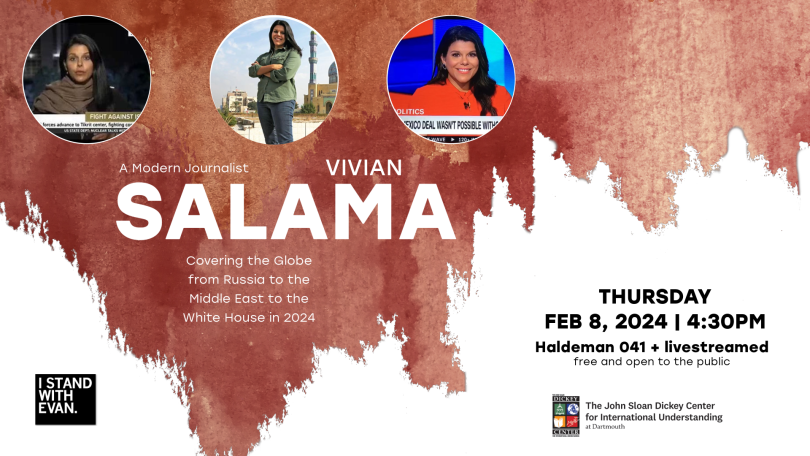Vivian Salama, national security reporter for The Wall Street Journal, in conversation with Spencer Boyer, former Deputy Assistant Secretary of Defense for European & NATO Policy.
Salama has covered U.S. foreign policy and national security for nearly two decades, reporting from more than 80 countries. Over the course of her career, she has called Iraq, Egypt, Pakistan, Israel and the Palestinian territories and the United Arab Emirates home. Before moving to Washington, Salama was Baghdad bureau chief for the Associated Press, covering the rise and fall of the Islamic State group in Iraq and Syria, as well as Iran's growing influence across the region. She also covered the refugee and IDP crisis spurred by the violence, visiting camps across the Middle East. The experience inspired Salama to write a children's book -- The Long Journey Home -- about an innocent Syrian boy who is forced to flee his home because of the war.
Prior to her posting in Iraq, Salama had covered the Arab Spring uprisings -- and their fallout -- writing extensively about the political, economic and social implications of the protests. She also wrote at length about U.S. foreign policy in the region, as well as its evolution with the new regimes that came to power following the protests. Salama has also spent time in Yemen investigating the U.S. targeted killing program, traveling repeatedly to al-Qaeda strongholds in the country documenting civilian casualties.
Salama is a fluent Arabic speaker and has working knowledge in Spanish. While the bulk of her experience has been in the Middle East and South Asia, she has also reported in North Korea, the Balkans, and across East Asia, sub-Saharan Africa, Europe and South America. She began her career working for television networks in New York City and Providence, Rhode Island.
Watch the recording of the event here.
